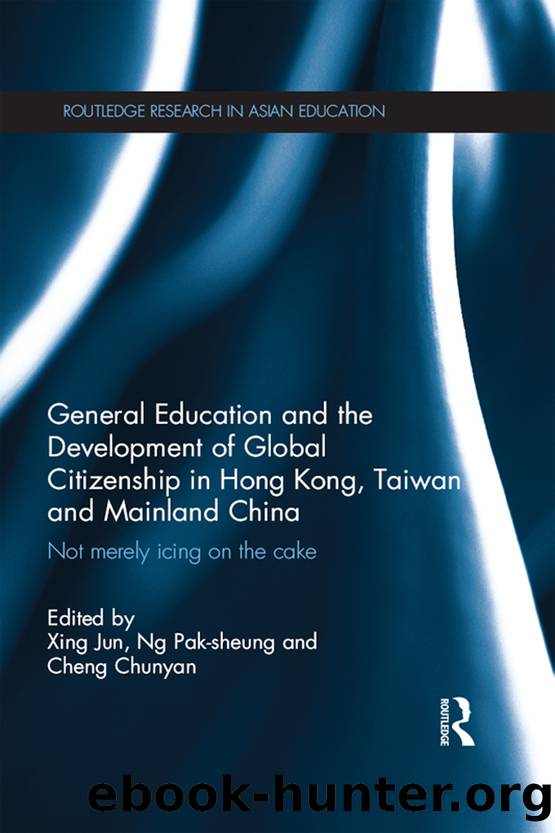General Education and the Development of Global Citizenship in Hong Kong, Taiwan and Mainland China by Xing Jun;Ng Pak-Sheung;Cheng Chloe;

Author:Xing, Jun;Ng, Pak-Sheung;Cheng, Chloe;
Language: eng
Format: epub
Publisher: Taylor & Francis Group
Table 8.2 General education attributes specifically addressed by Hong Kong universities
Notes
CUHK
Chinese University of Hong Kong
CityU
City University of Hong Kong
HKBU
Hong Kong Baptist University
HKIEd
Hong Kong Institute of Education
PolyU
Hong Kong Polytechnic University
HKUST
Hong Kong University of Science and Technology
LU
Lingnan University
HKU
University of Hong Kong
The Lingnan program also includes a greater language requirement (18 credits) than any other institution, exaggerating this difference. Institutions differ with respect to how they describe their language requirements and the extent to which they are integrated into general education. In some cases they are viewed as a separate part of the curriculum, whereas PolyU requires not only nine credits of language courses (six English, three Chinese) but also suggests that content courses in other areas include reading and writing instruction and assignments of a specified nature.
Similarity in overall goals and size of general education programs conceal some variety in the way these curricula are structured. Overall, general education programs range from those that ensure breadth by requiring students to select subjects from different disciplinary categories to those that mandate a core curriculum for all students that is integrated across disciplines. Most programs, both in the USA and Hong Kong, lie somewhere between these two extremes. Thus while they may require students to select courses from different categories, those courses are specifically designed for the general education program and the connections between them are made more or less explicit. All of the new programs in Hong Kong include some kind of distribution requirements where students are required to select a certain number of subjects from different categories (Table 8.4). Some are described in relatively simple disciplinary terms, e.g. HKUST (arts and humanities, social analysis, science and technology, quantitative reasoning), whereas others have more interdisciplinary names, e.g. HKIEd (truth, value and aesthetics, identity, community and culture, science technology and nature). While the names may differ, the broad disciplinary areas are apparent.
Download
This site does not store any files on its server. We only index and link to content provided by other sites. Please contact the content providers to delete copyright contents if any and email us, we'll remove relevant links or contents immediately.
The Art of Coaching Workbook by Elena Aguilar(51165)
Trainspotting by Irvine Welsh(21643)
Twilight of the Idols With the Antichrist and Ecce Homo by Friedrich Nietzsche(18625)
Fangirl by Rainbow Rowell(9229)
Periodization Training for Sports by Tudor Bompa(8254)
Change Your Questions, Change Your Life by Marilee Adams(7761)
This Is How You Lose Her by Junot Diaz(6877)
Asking the Right Questions: A Guide to Critical Thinking by M. Neil Browne & Stuart M. Keeley(5762)
Grit by Angela Duckworth(5605)
Red Sparrow by Jason Matthews(5468)
Paper Towns by Green John(5179)
Room 212 by Kate Stewart(5105)
Ken Follett - World without end by Ken Follett(4723)
Housekeeping by Marilynne Robinson(4436)
The Sports Rules Book by Human Kinetics(4379)
Papillon (English) by Henri Charrière(4263)
Double Down (Diary of a Wimpy Kid Book 11) by Jeff Kinney(4261)
The Motorcycle Diaries by Ernesto Che Guevara(4089)
Exercise Technique Manual for Resistance Training by National Strength & Conditioning Association(4063)
